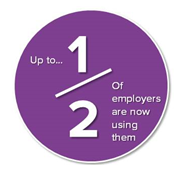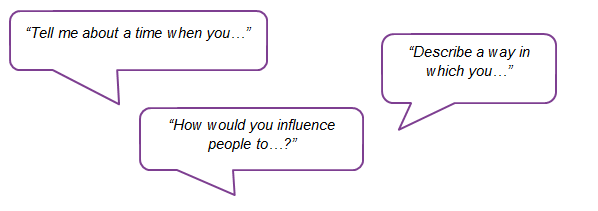What are they?
Employers want to know how candidates would handle real-life situations and they want real-life examples to prove it.

This type of interview is known as a ‘structured’ interview. Rather than a conversation-style meeting, you will be asked targeted questions to assess a specific skill or quality the company are looking for. You could be asked
to give an example of something you’ve done, or be given a hypothetical situation and asked how you would respond.
These questions can take several forms, but in general they will go something along the lines of…

Why are they used?
These types of interviews are useful when hiring graduates who have little or no industry experience - but they are also increasingly being used for more experienced candidates.
For an employer, there are several advantages to this style of interview:
- It can give a good indication of your style of working
- It shows how you would behave in certain situations
- It allows interviewers to ensure that what you say on your CV is true, by asking you to give examples.
- It gives the employer an idea of whether you’ll fit into the company’s culture
- The employer can focus on one specific skill at a time
How do you answer them?
The most important thing when it comes to competency based interview questions is knowing how to answer them. The most popular way is the STAR method. This is an excellent way to ensure your answers are focused and to the point.

Competency based questions are looking for you to demonstrate that you have a particular skill, so make sure you keep that in mind throughout the process! There are a few ways you can prepare for the questions you might get asked…
1. Look at the person specification…
The qualities they are looking for in a successful candidate will most likely appear in the job description. If they ask for ‘good communication skills’ make sure you have examples of when you used your communication skills to resolve an issue or achieve a goal. Remember, these don’t all have to be work-related. You can use examples from your education or personal life too.
2. Look at your CV…
Make sure you are well acquainted with your CV, and can use examples from it to demonstrate your skills. This will not only back up what the interviewer has already seen, but will draw their attention back to your previous experience.
3. Be prepared…
Once you have examples of the qualities you think the employer is looking for, make sure you have answers prepared so you don’t get flustered when it comes to interview. Jot down possible answers using the STAR method and rehearse them so you can be clear and concise.



